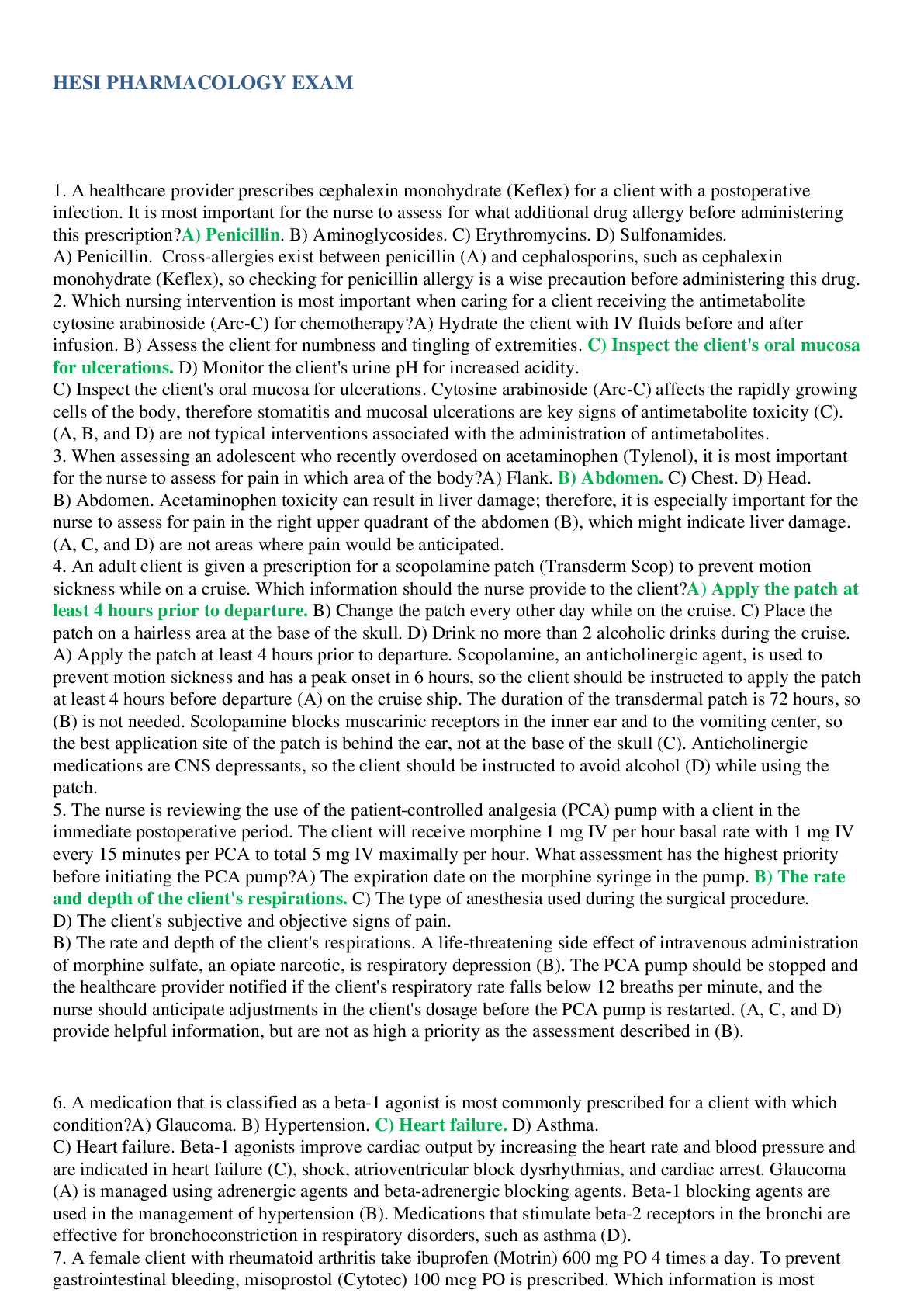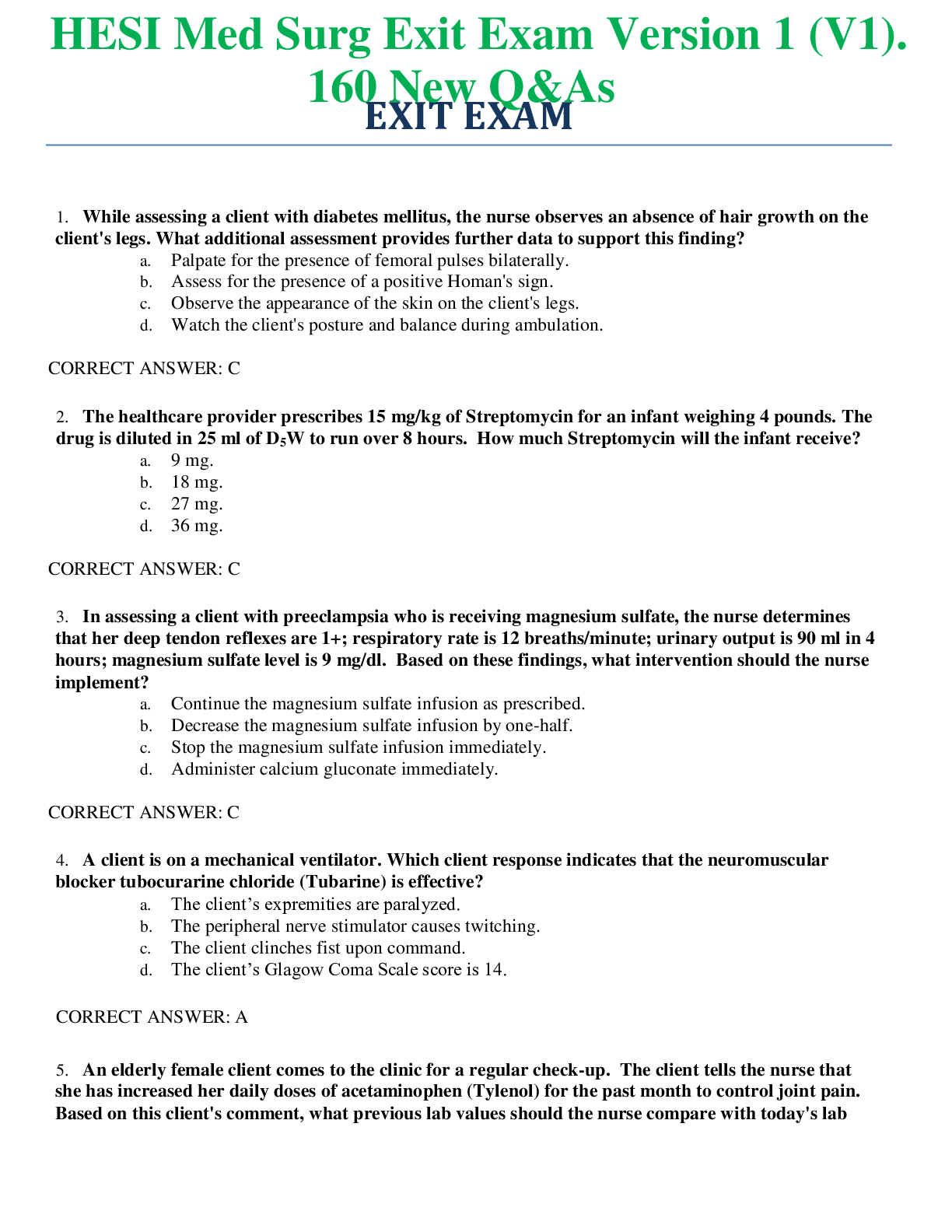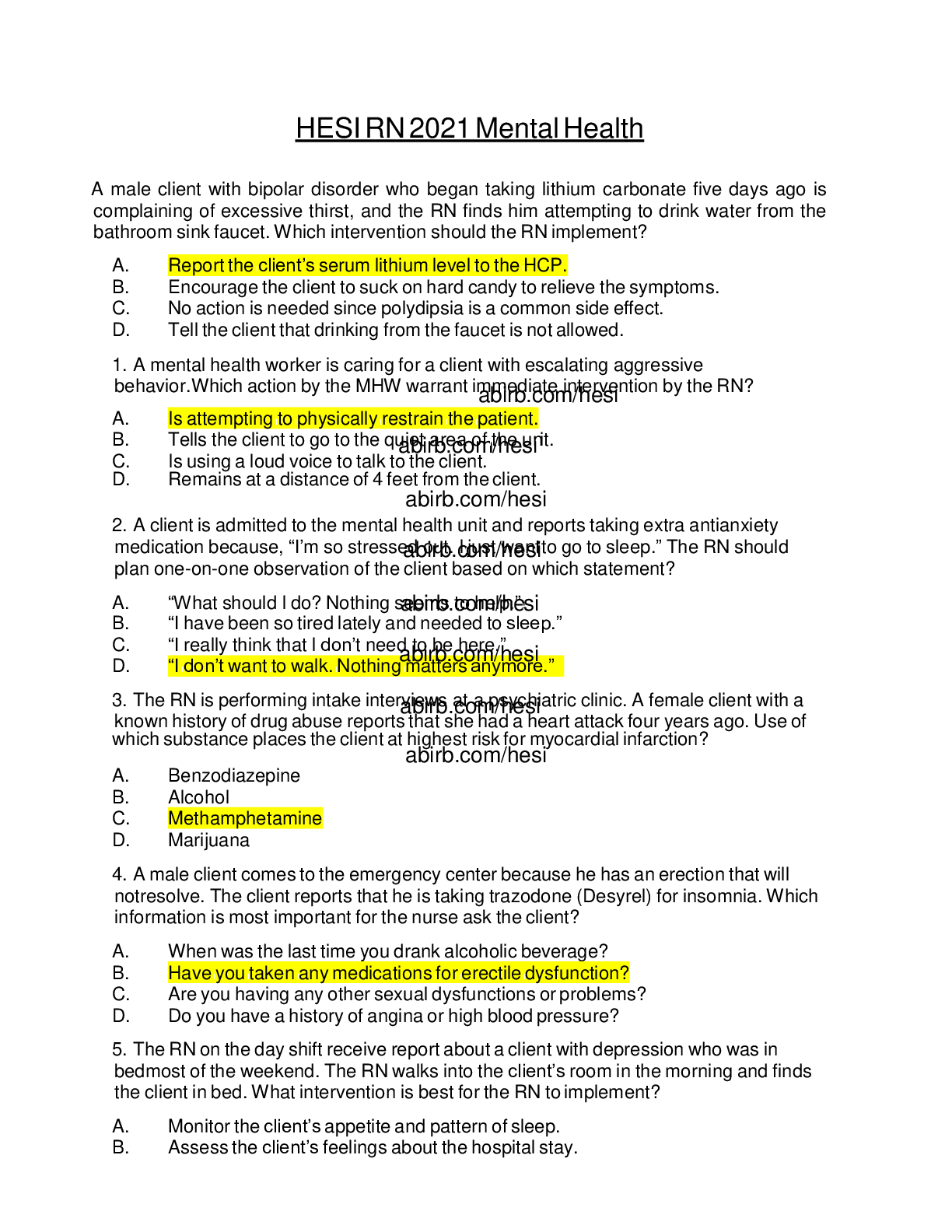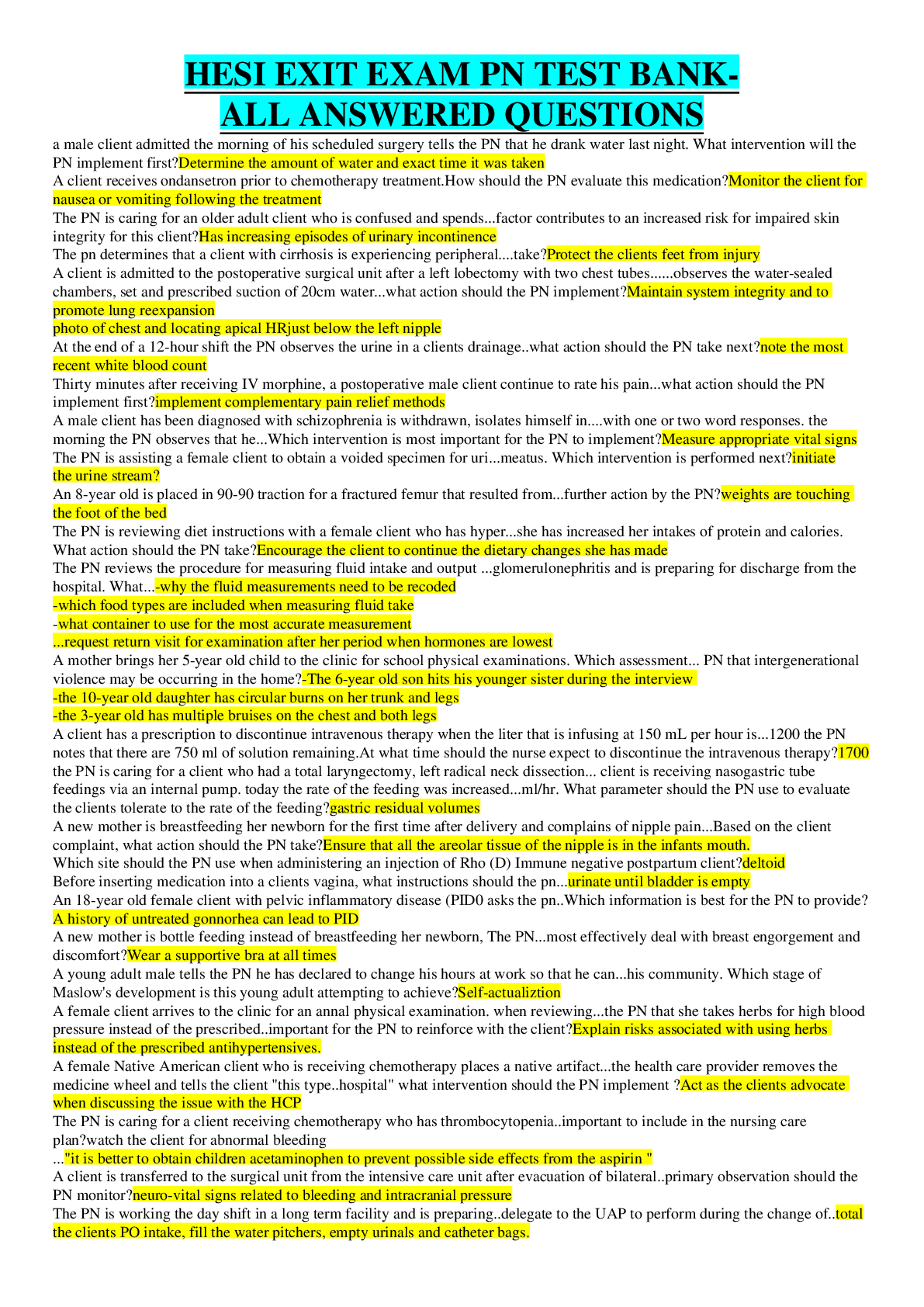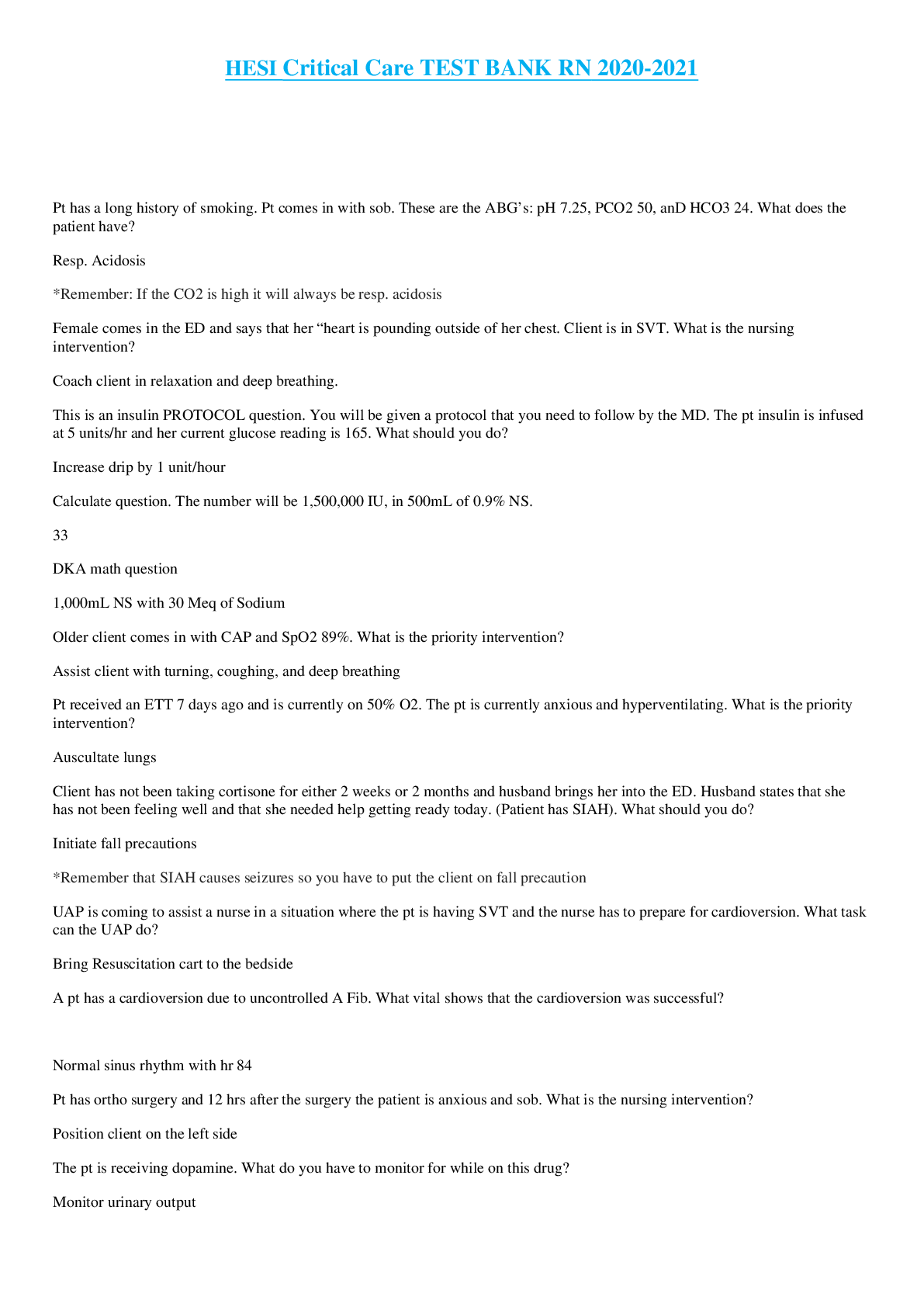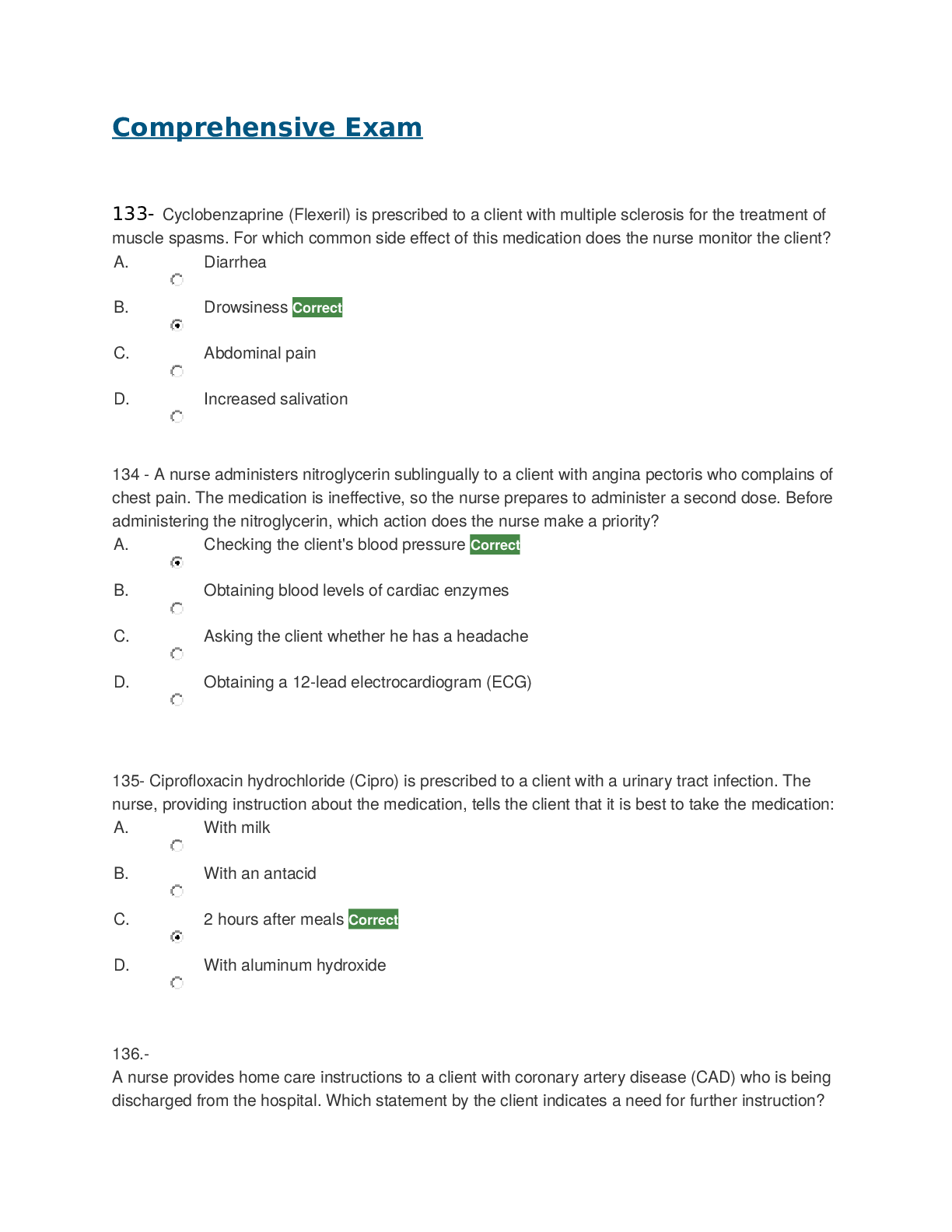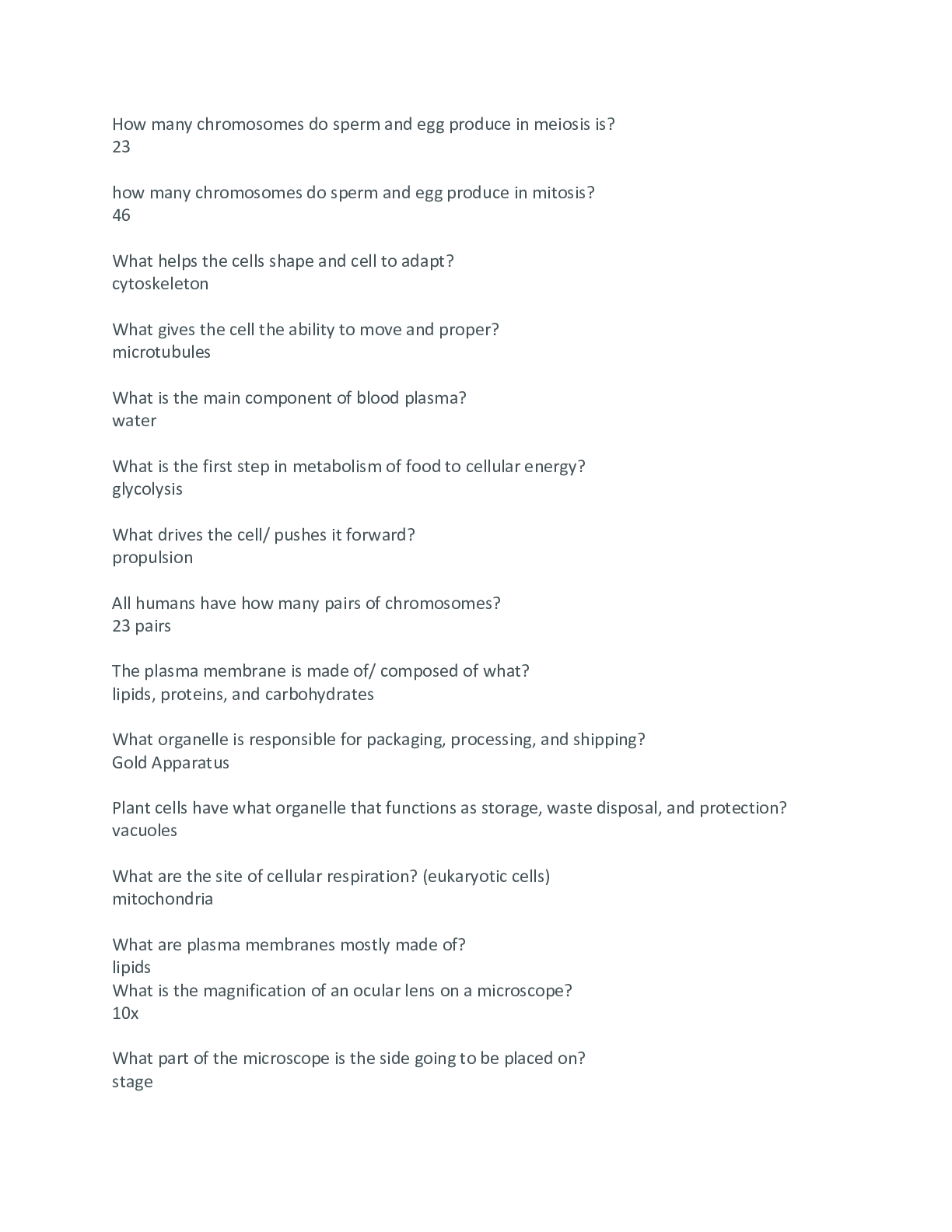*NURSING > HESI > Houston Community College - RNSG 2130Critical_care_2019 / Critical Care HESI Review (All)
Houston Community College - RNSG 2130Critical_care_2019 / Critical Care HESI Review
Document Content and Description Below
Critical Care HESI Review Page 1 of 23 EKGs Legal/Ethical - Nurse Practice Act is what legally defines the scope of practice for nurses in each state. Its purpose is to protect the public. - Mal... practice must have the following 6 elements to be present: - Duty owed to the patient - Breech of duty - Foreseeabliity (you knew that what you did/didn’t do would cause harm) -Causation (what you did causes the patient harm) - Injury - Damages (financial damages) -Assault- threaten to touch a patient when they don’t want to be touched Battery- touching a patient when they don’t want to be touched - Invasion of privacy- unwanted intrusion into the patients private affairs, could also mean leaving a pt exposed in a public area, facebook entries, or sharing their medical information - Slander- saying things that aren’t true about someone - Libel- writing things that aren’t true about someone - Informed consent - must be obtained by the physician, but the nurse can clarify and actually have the patient sign - pt must understand all risks associated with the procedure - needed for any invasive procedure - signed by the client or parent if minor; if that is not possible the spouse, adult children, closest relative, and power of attorney can sign - cannot sign if under the influence of drugs/alcohol or incompetent to make decisions - DNR- physician must write the order - Out of hospital DNR is not good if patient is admitted to the hospital - Cannot restrain a patient unless you have a physician order to do so. Pt has to be declared “need for restraint” based on probability that he will do harm to himself or others if not restrained. You need consent if possible. Must assess q15min and have a new order at least q24hrs. - Autonomy- pts right to make their own decisions - Beneficence- duty to do good - Nonmaleficence- duty to do no harm - Veracity- duty to tell the truth End of Life Issues - Manage symptoms such as dyspnea, n/v, fever and infection, edema, anxiety, delirium, metabolic derangement - Turn, position, give sedatives, sometimes give antibiotics to stop symptoms, pain management is very very important. There is no upper dose to morphine sulfate (drug of choice). - All hospitals required to have written agreement with an organ procurement agency (OPO) and also a tissue and eye bank. The nurse is required to notify this agency to approach family with donation request. - Needs of the dying patient: - receive adequate pain and symptom management - avoid prolongation of dying - achieve a sense of control Continued................ [Show More]
Last updated: 1 year ago
Preview 1 out of 23 pages
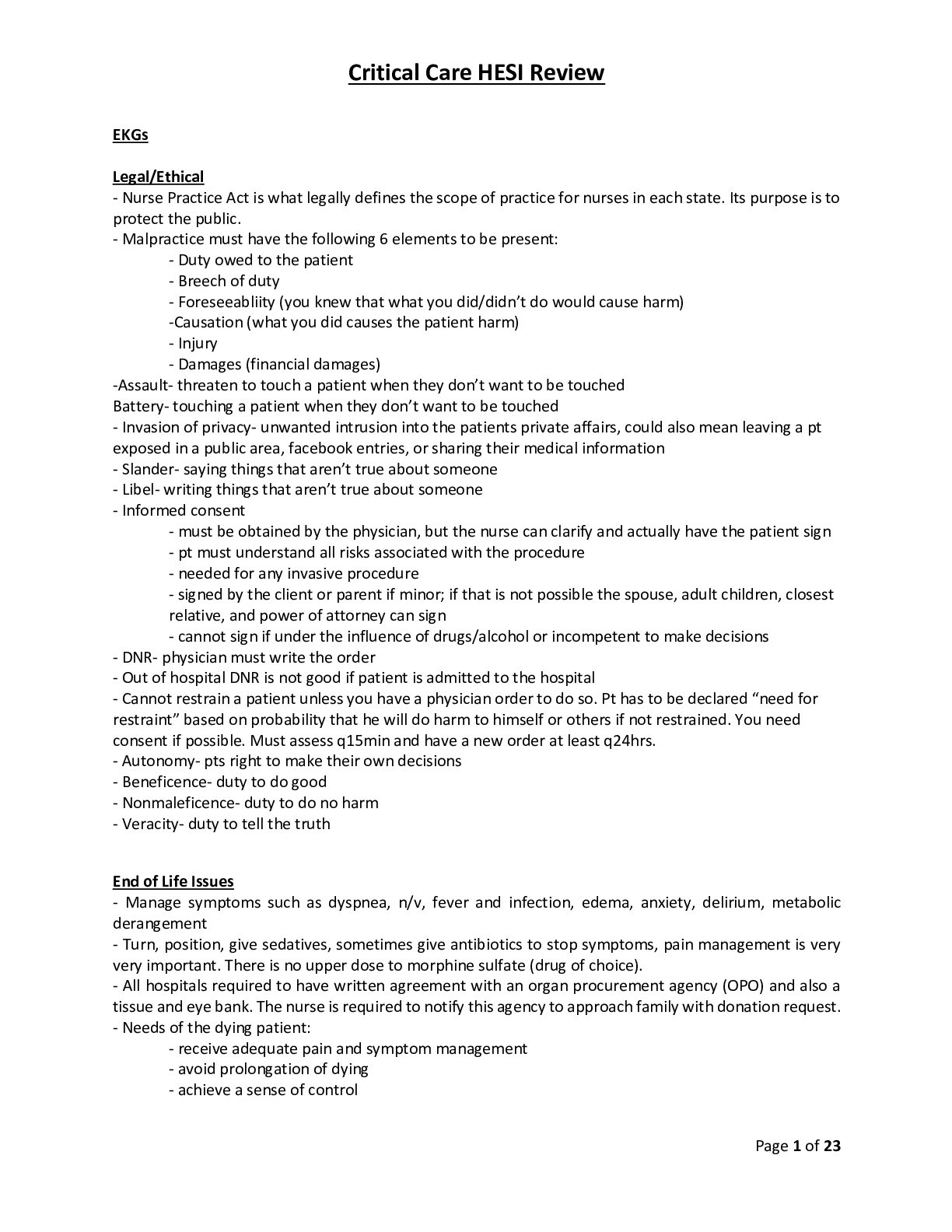
Reviews( 0 )
Document information
Connected school, study & course
About the document
Uploaded On
Feb 05, 2021
Number of pages
23
Written in
Additional information
This document has been written for:
Uploaded
Feb 05, 2021
Downloads
0
Views
38

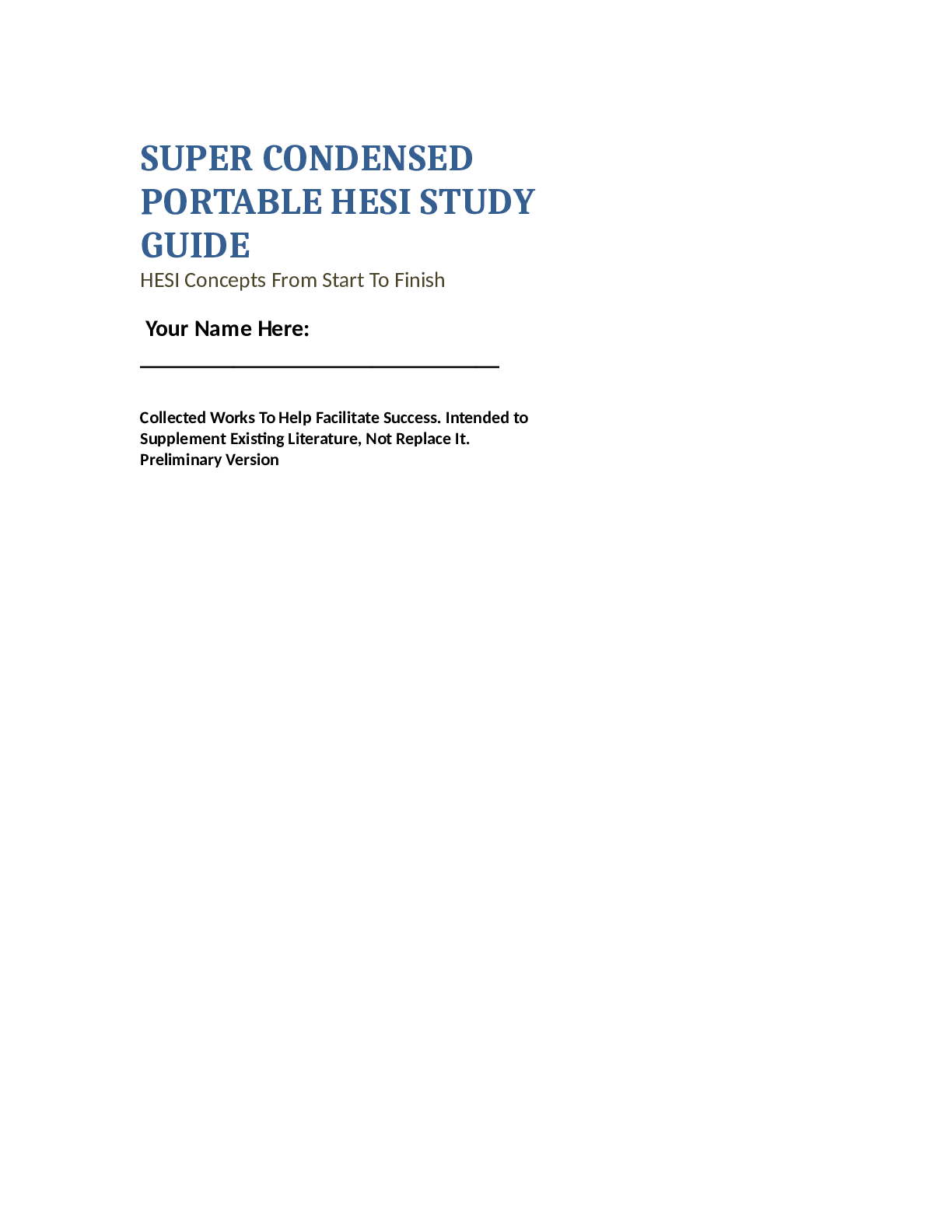
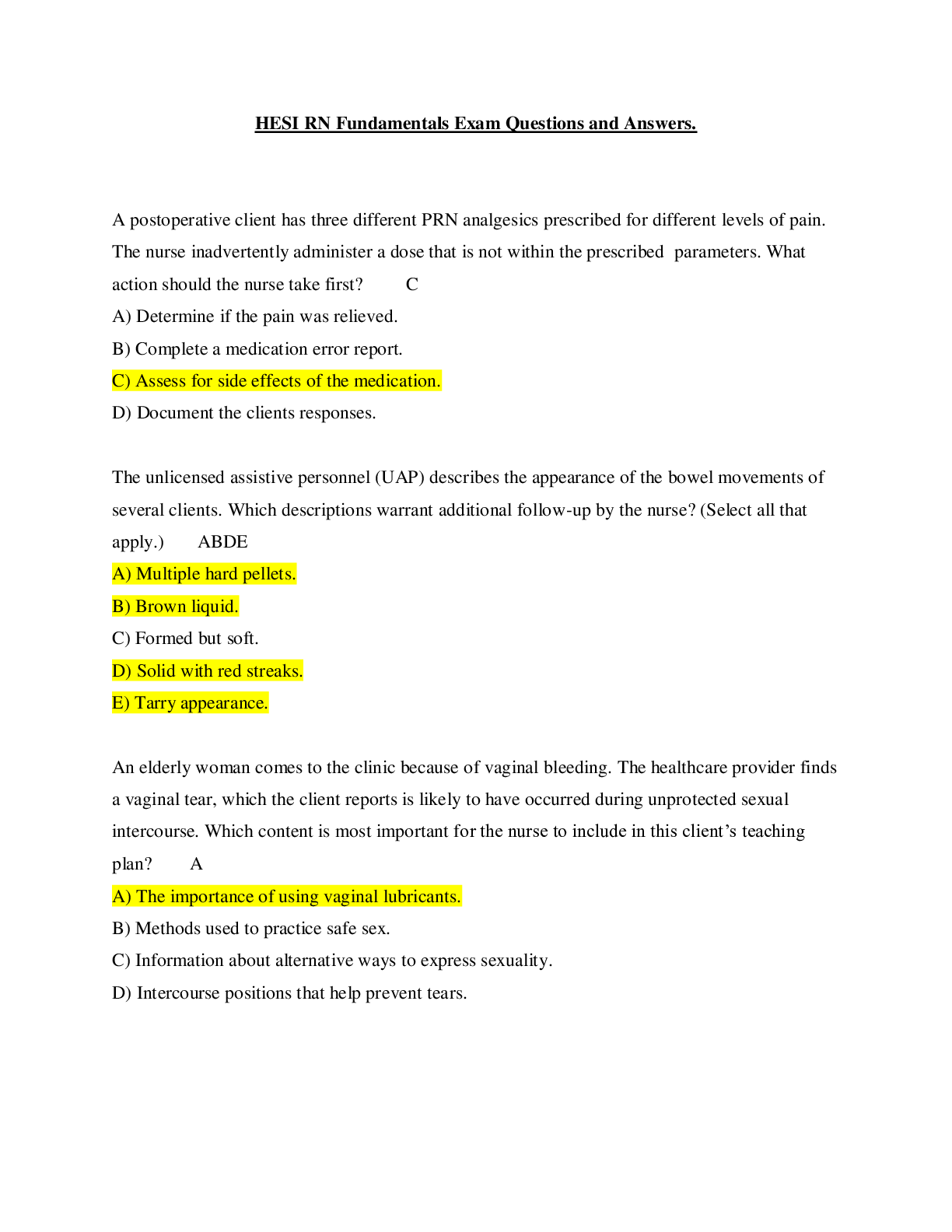
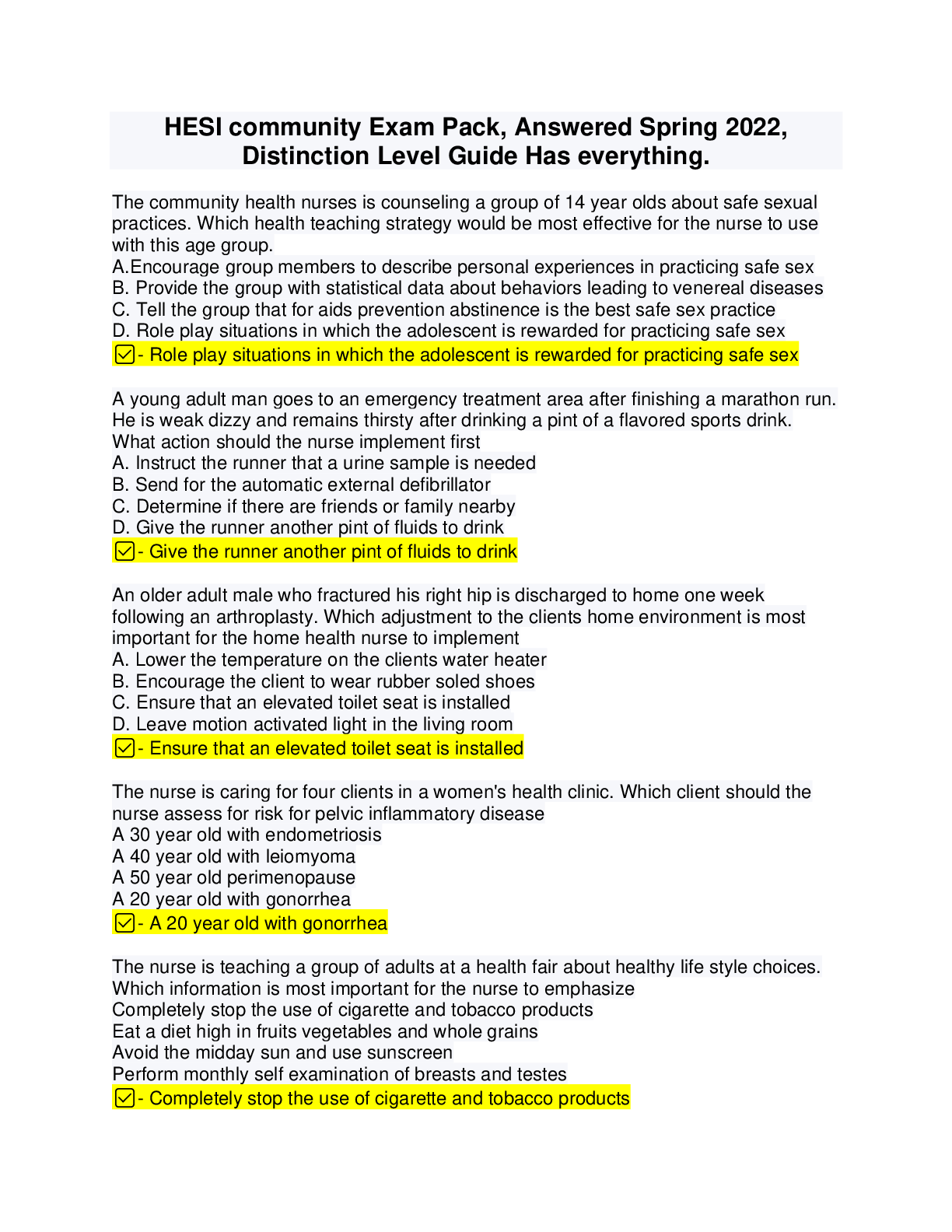
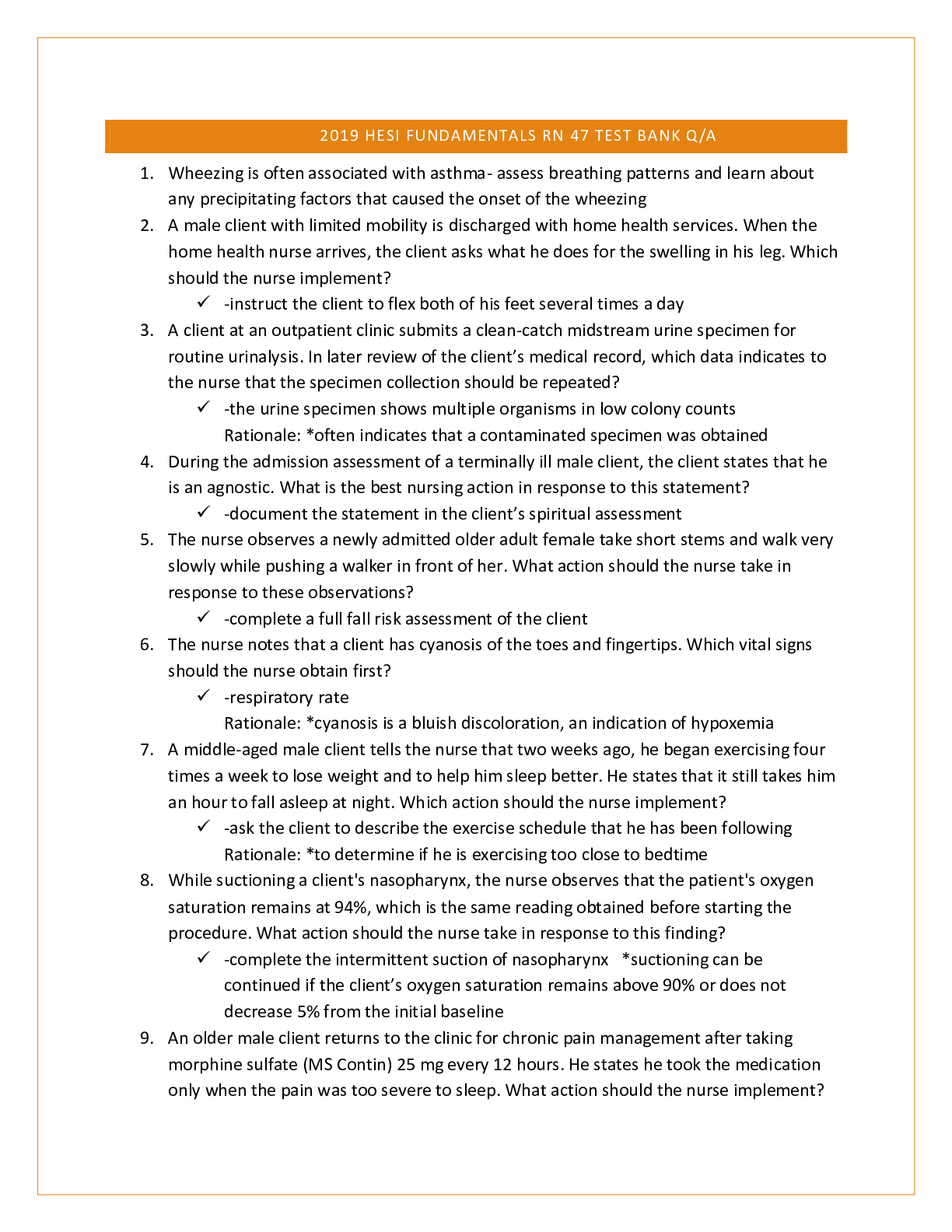
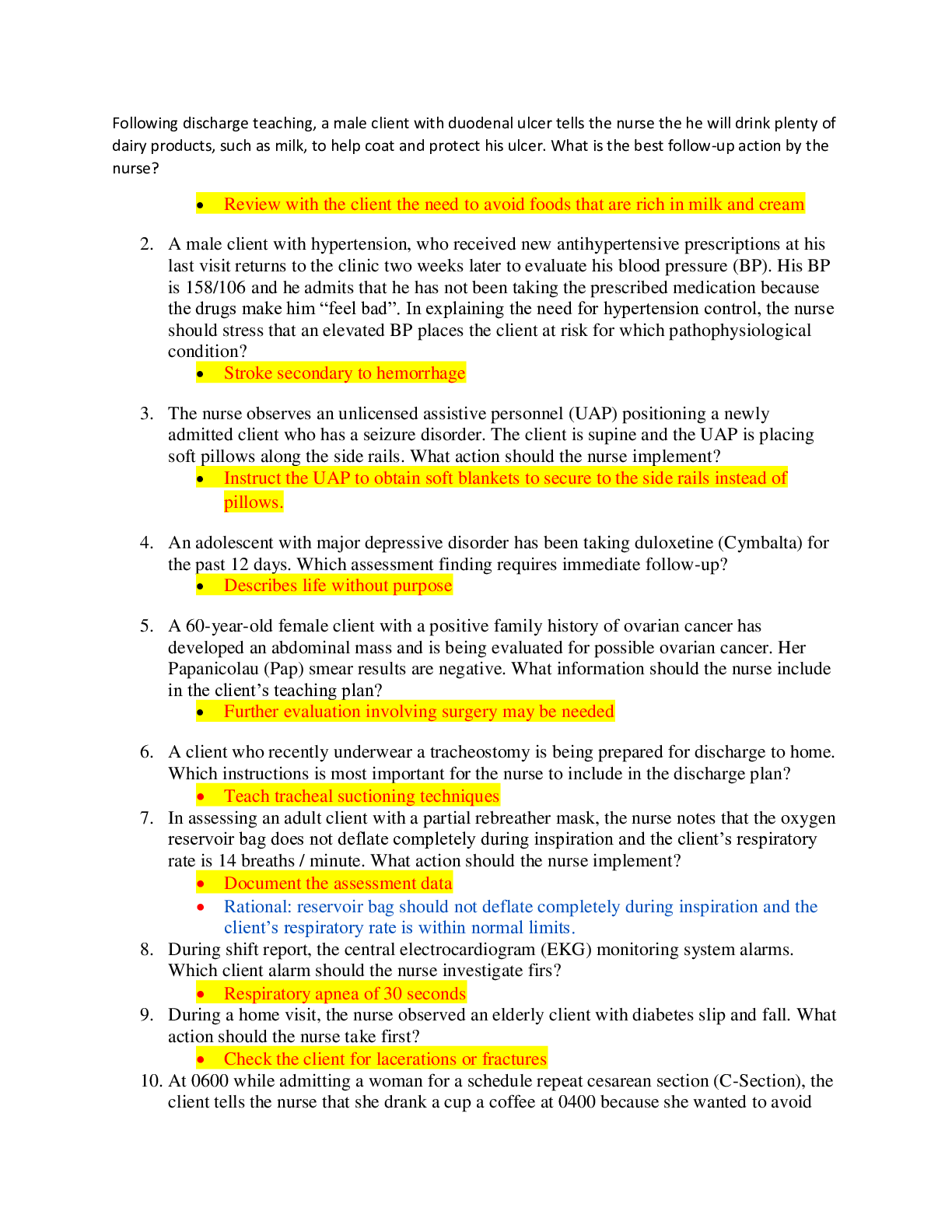
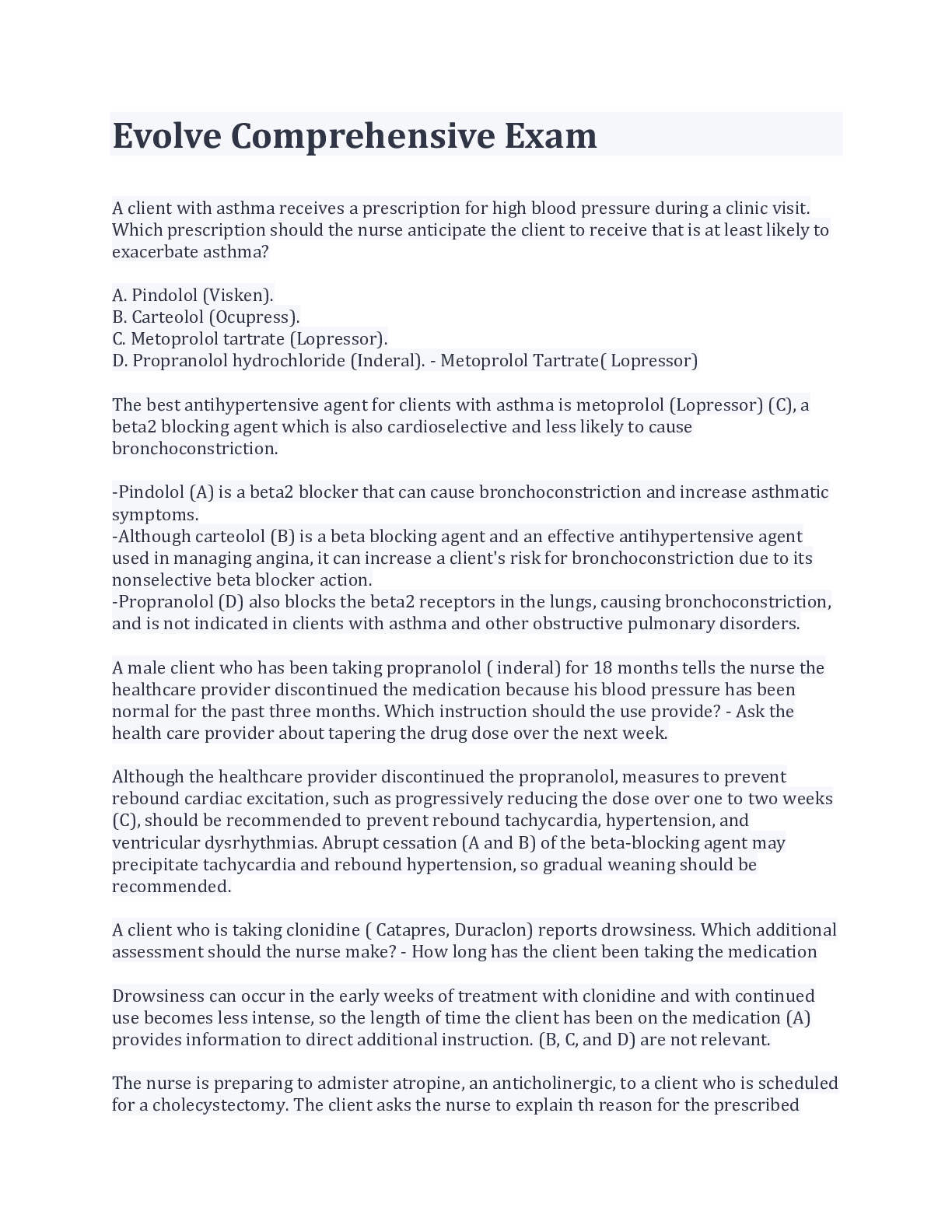
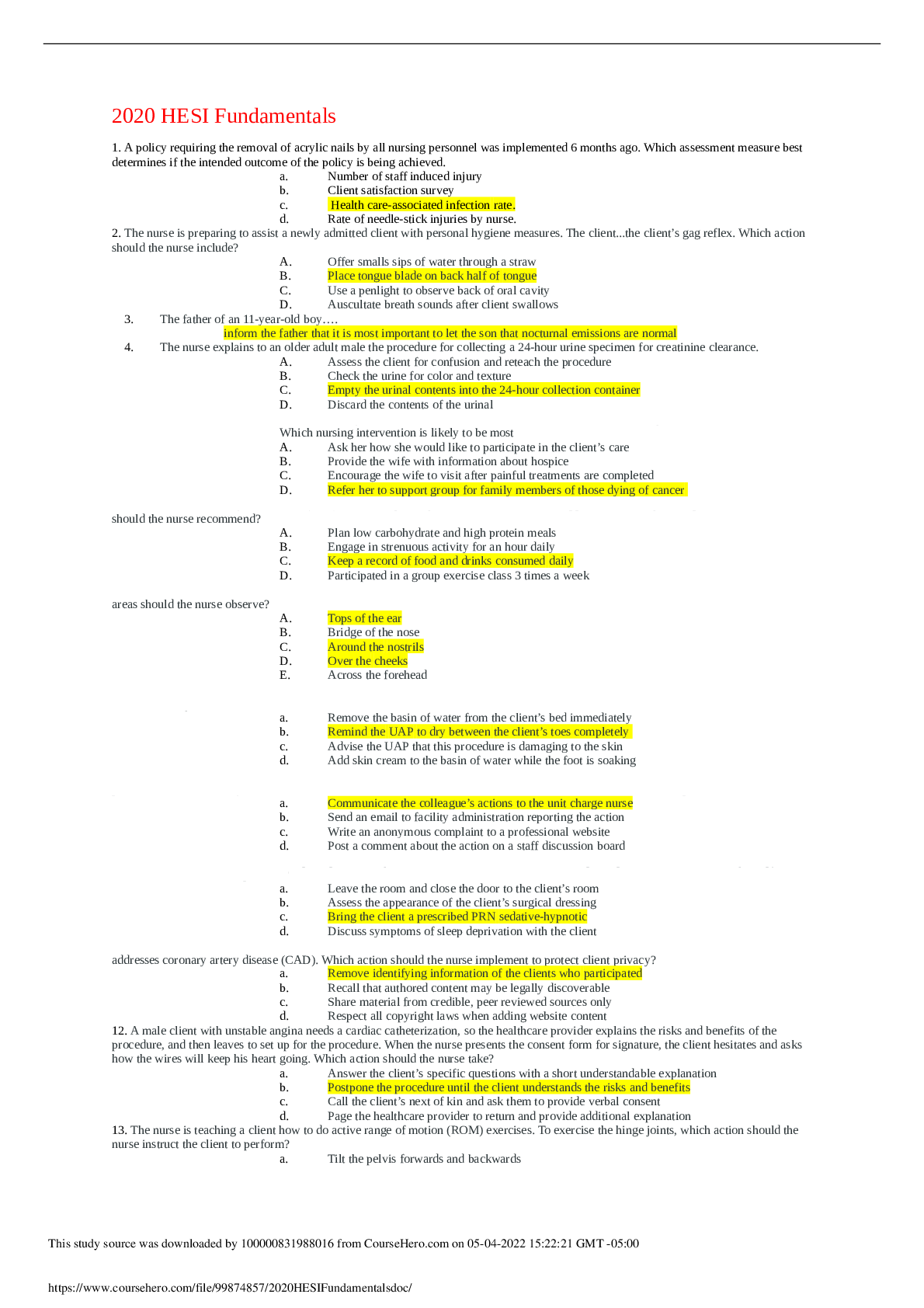
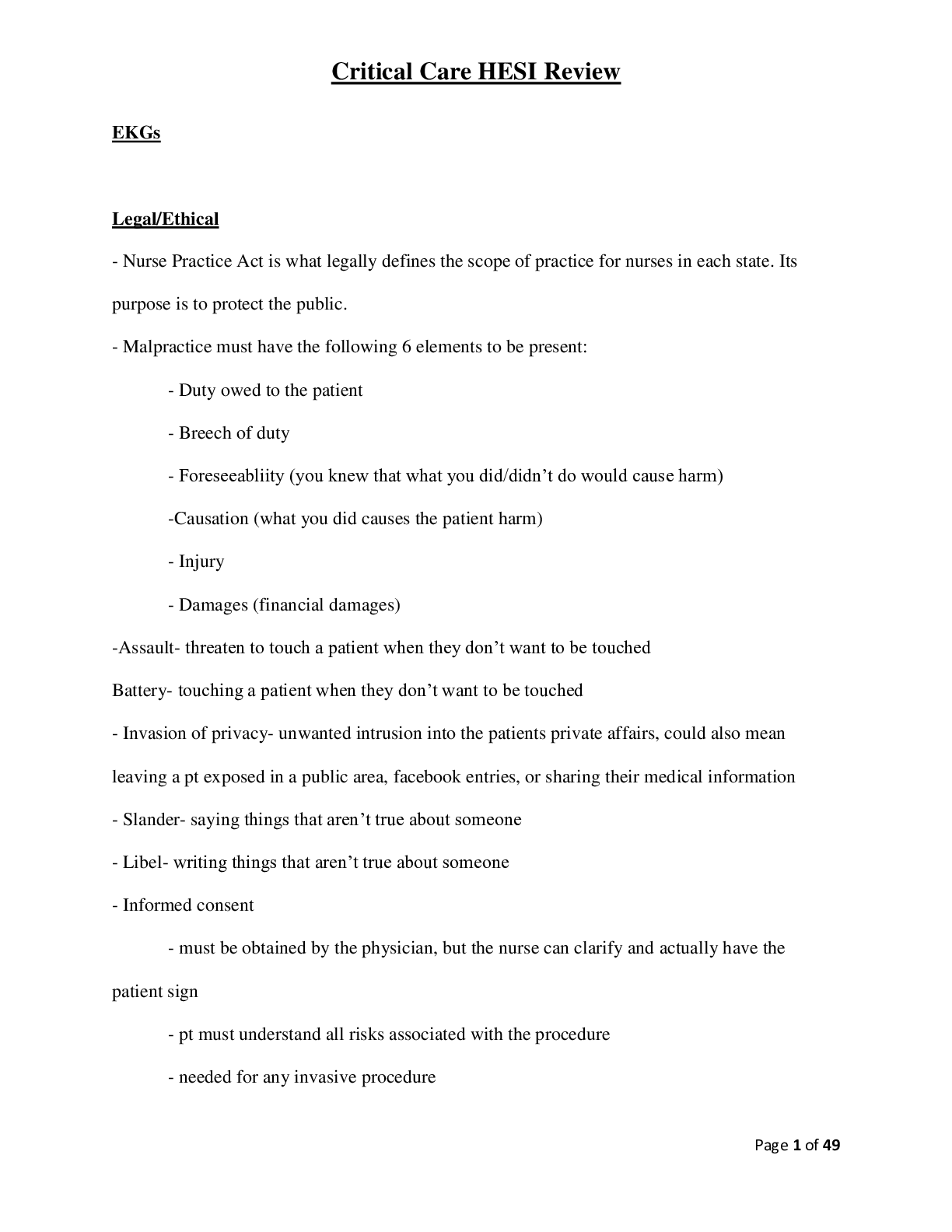

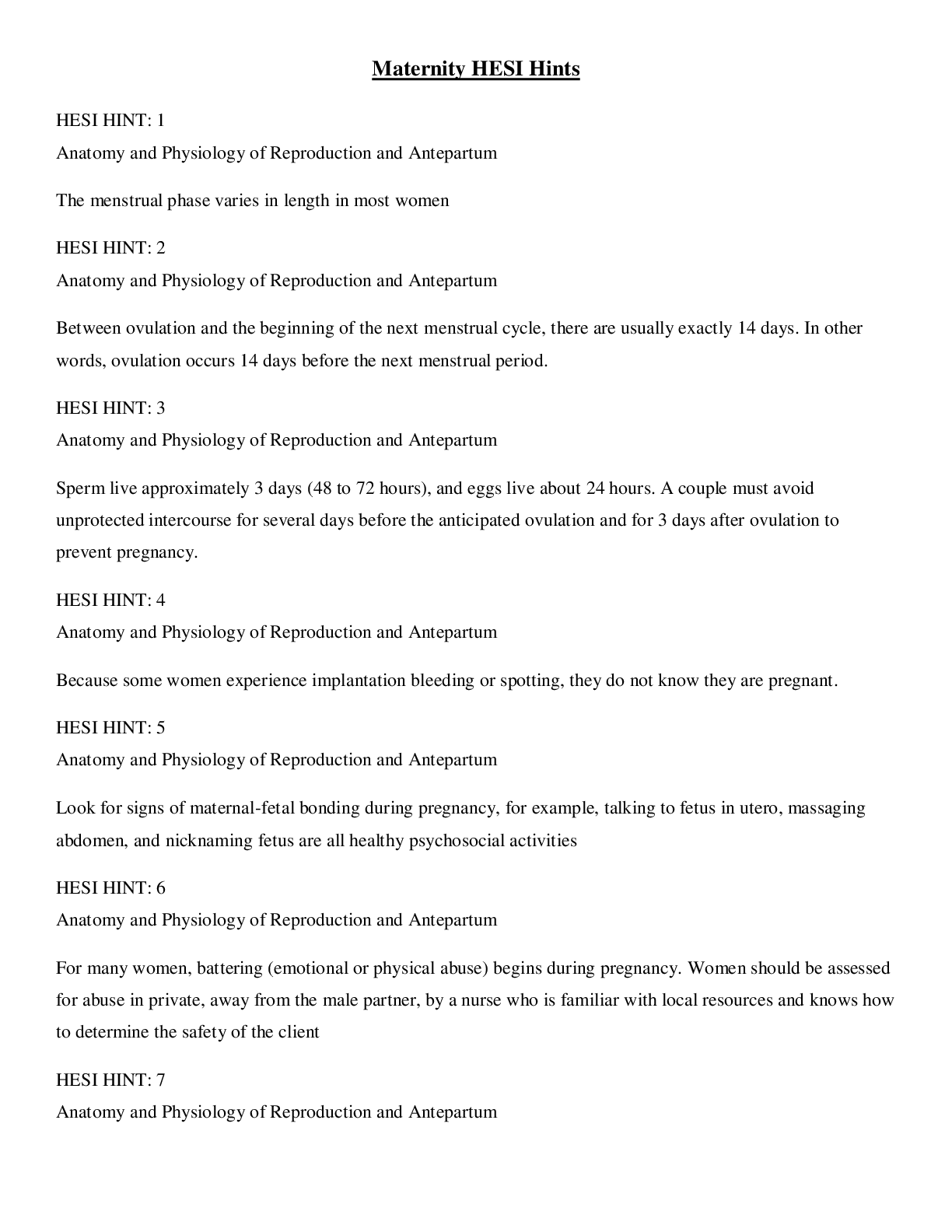
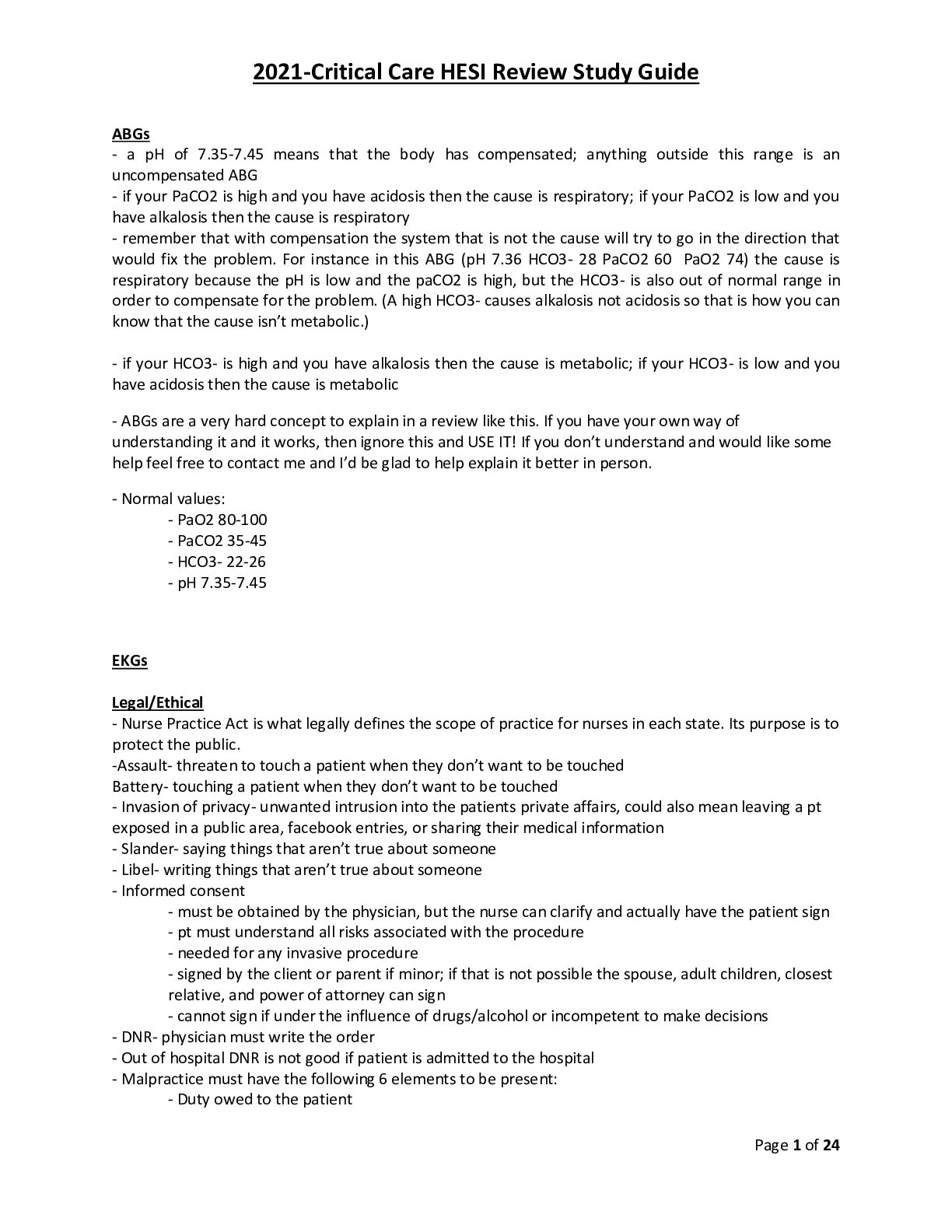
.png)
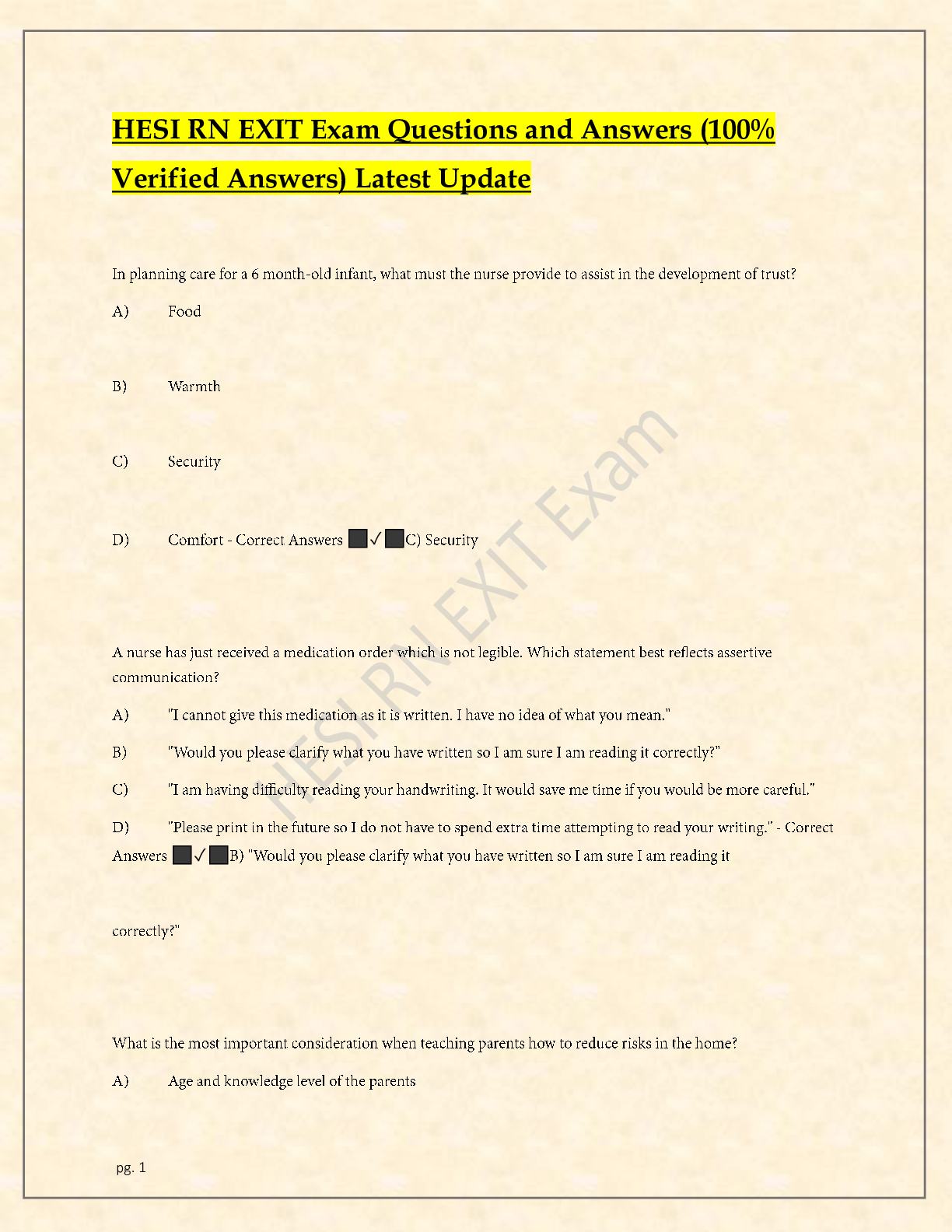
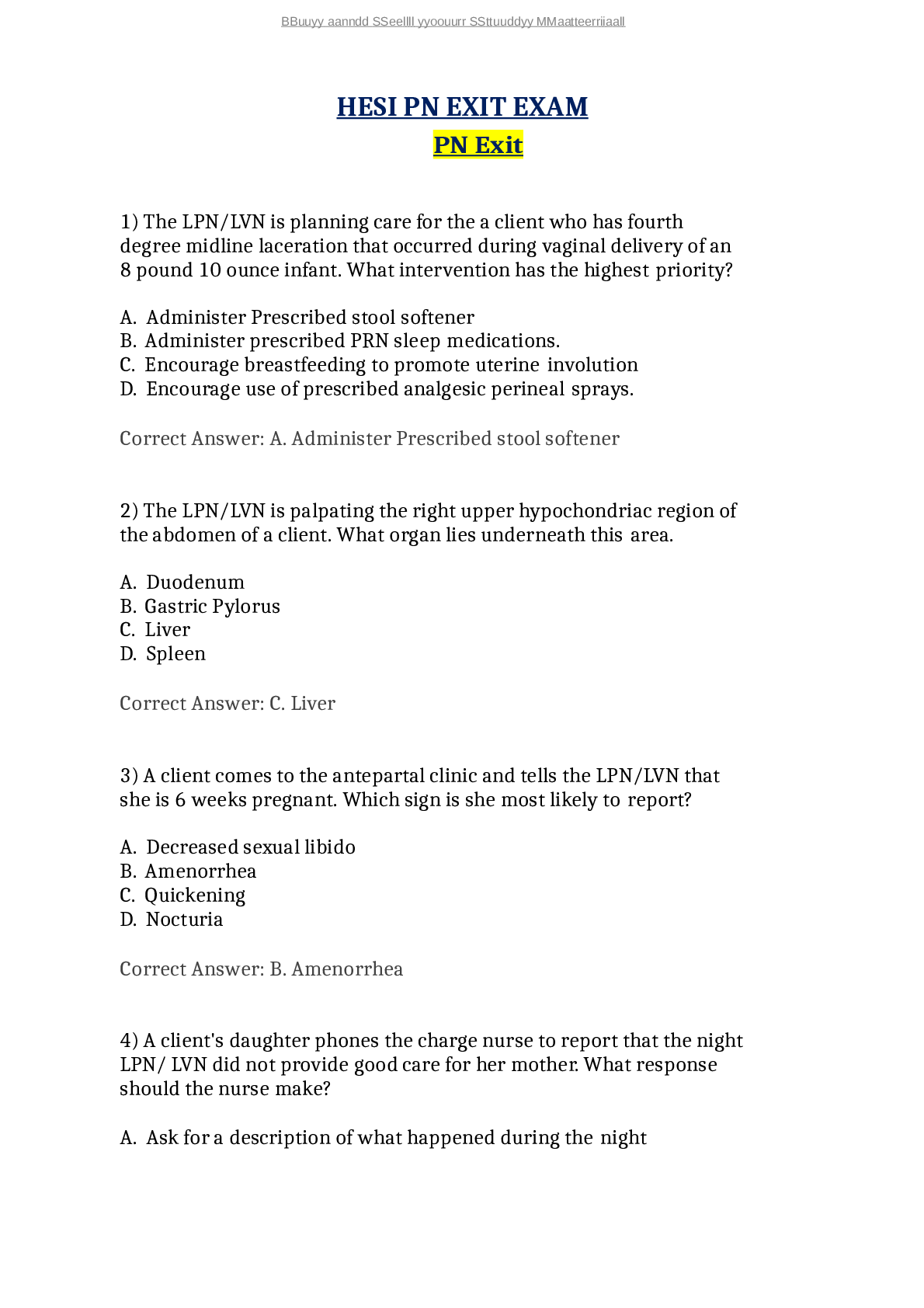
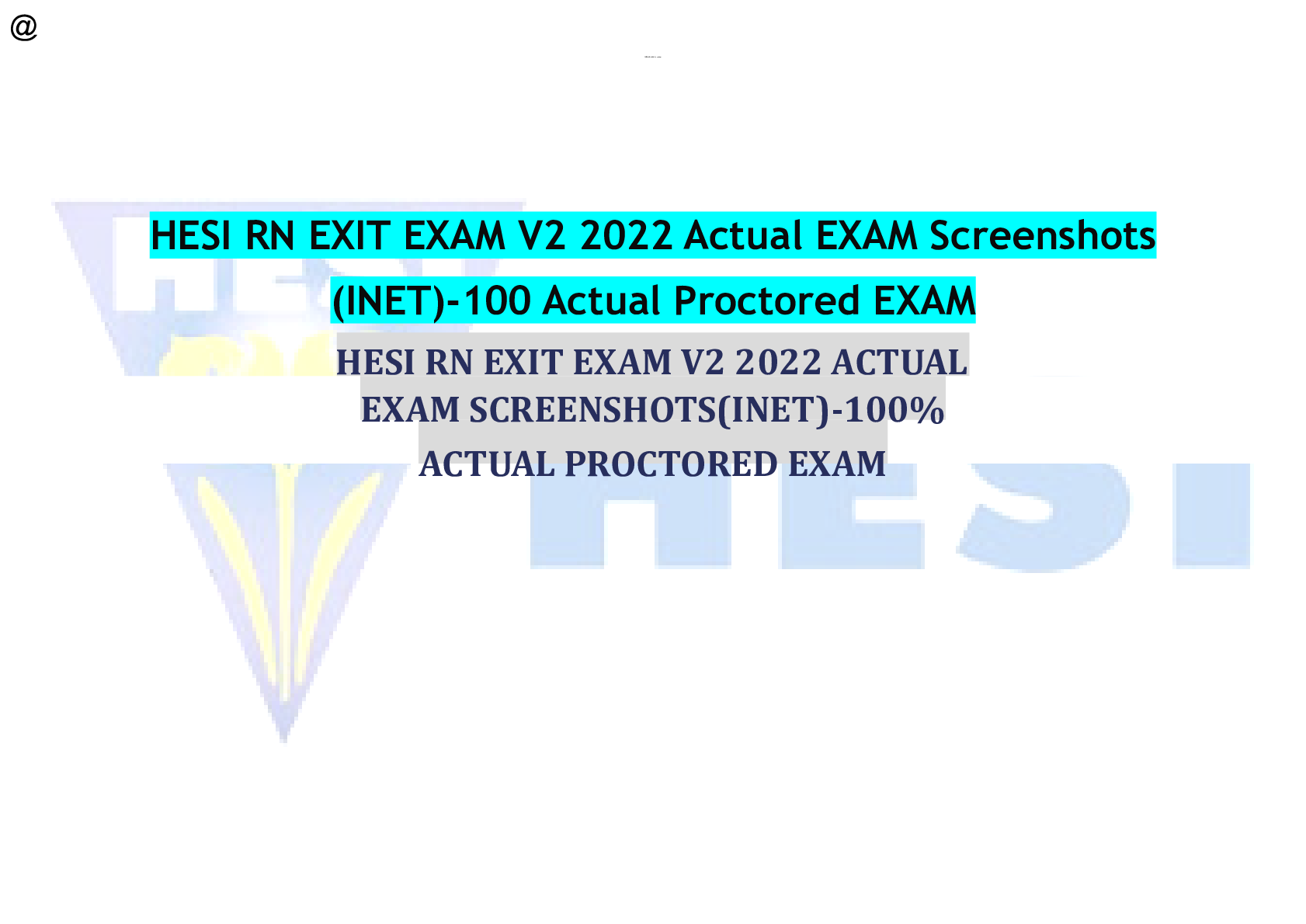
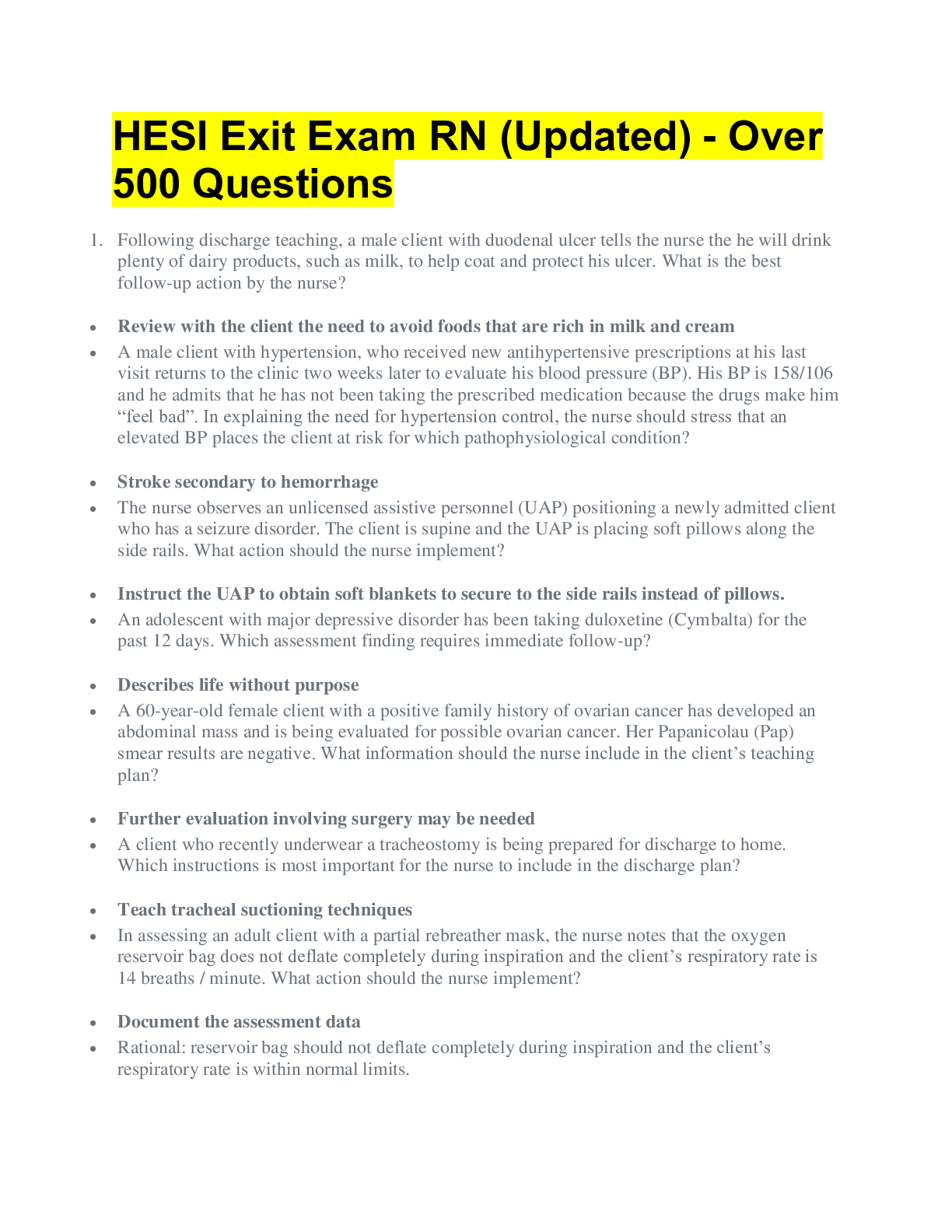
 (1).png)
